“Is there anything new on the horizon?”
This is one of the most frequently asked questions about software and technology, such as what's new in computers, what's new in smartphones, or simply what's new in digital spaces.
Everyone is curious about what's new in Drupal 10 now that it's been released.
Now that we have heard about the arrival of Drupal 10, we all must be aware of what new advancements it is bringing on to the table.

When’s Drupal 10 releasing?
Drupal 10 release date is estimated in late 2022. This update, like the transition from Drupal 8 to Drupal 9, will be a smooth transition for any well-built and maintained Drupal site.
Since Drupal 8, the Drupal maintainers have taken a methodical approach to releasing new versions of the CMS. This benefits everyone who creates, manages, or maintains a Drupal site by providing a clear path for updates from one major version to the next.
But the most important question is why Drupal 10 is being released in December rather than August? There can be two reasons for the date shift:
Why not releasing it in August:
Core Development developers have been working hard over the last few months to complete Drupal 10 release date, requirements and strategic goals.
The community has been working hard to remove deprecated code, remove unnecessary dependencies, update our JavaScript, and prepare modules for contribution.
The integration with CKEditor version 5 is the most critical requirement for Drupal 10. Because CKEditor 4 will be deprecated at the end of 2023, Drupal 10 should use CKEditor 5.
Thousands of hours have been invested in integrating this new version of CKEditor into Drupal, as well as close collaboration with the CKEditor team.
Additional critical issues that need to be resolved for CKEditor 5 to be stable have been discovered as a result of the work done, and these issues will not be completed in time for the May 13 beta deadline required for the August release.
Advantages of releasing Drupal in December 2022:
The main advantage of releasing Drupal 10 in December rather than August is that it allows us more time to stabilize CKEditor.
It also allows site owners more time to test moving their content from CKEditor 4 to the new version in Drupal 9, ensuring a smooth and secure upgrade path for this major change.
The best news for PHP developers like me is that Drupal 10 will be released in December with Symfony 6.2, which will include improvements and bug fixes over the current 6.0 release, as well as reduce the workload on security teams.
As previously announced, Drupal 10 will require PHP 8.1, and the December release means that most hosting providers will support PHP 8.1, allowing sites to begin updating without waiting for platform fixes. Drupal 10.
PHP 8.2 is also due out in November, and Drupal 10 will have as much compatibility with it as possible. (Until November 2024, PHP 8.1 will be the minimum requirement for Drupal 10.) To know more, read this complete guide on PHP 8 and the importance of updating PHP.
What’s new in Drupal 10
Version 10 will include numerous new features.. So let us understand some of the features that Drupal 10 will provide us with for a better experience.
Claro theme
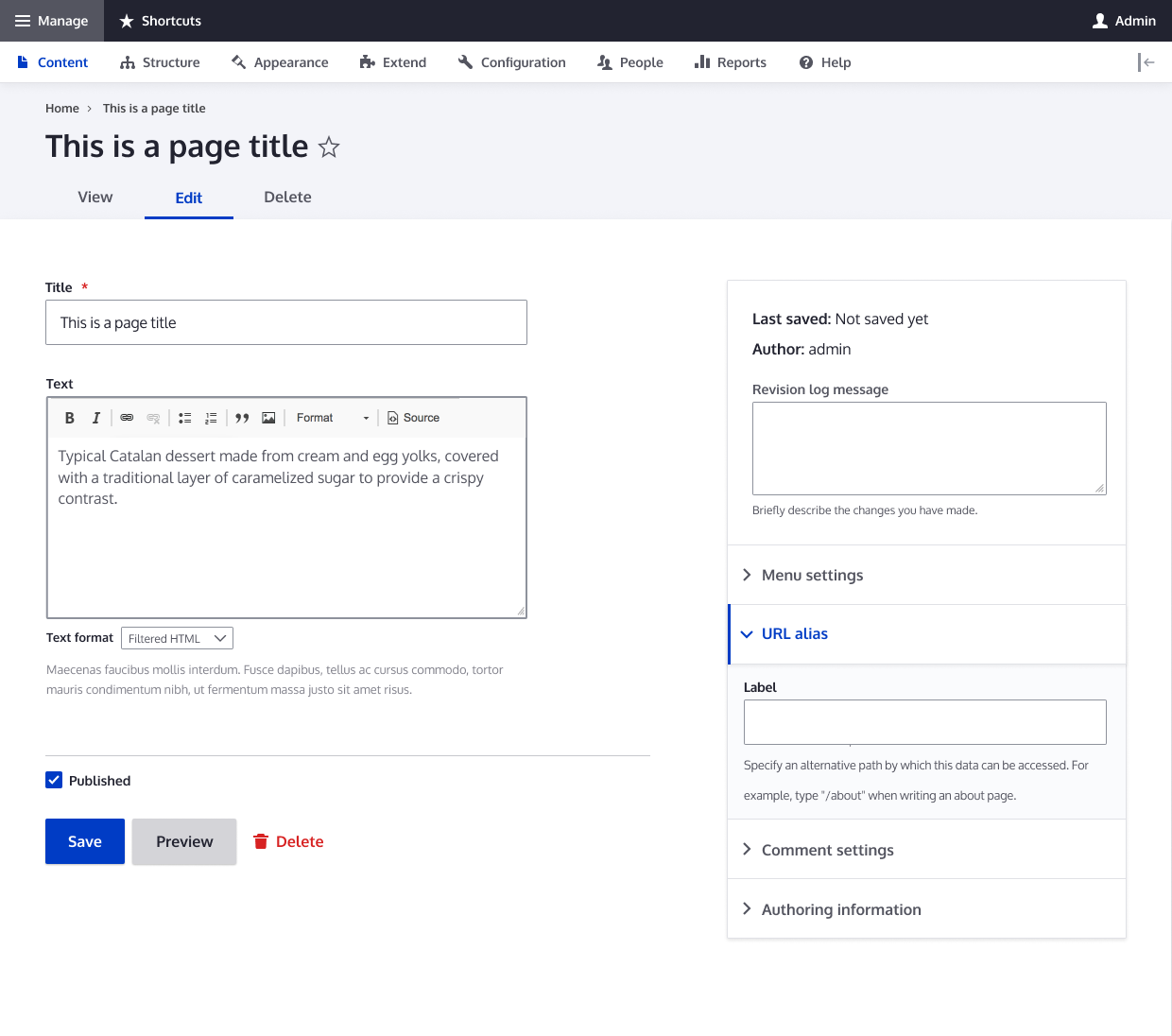
Claro theme will replace the tired Seven theme, designed in 2009 for Drupal 7 and slightly updated in Drupal 8, was discouraging new users by giving the impression of an out-of-date system.
Drupal 10 has been designed in accordance with the latest standard and has been adapted to take full advantage of the new versions of this CMS.
Front end theme Olivero
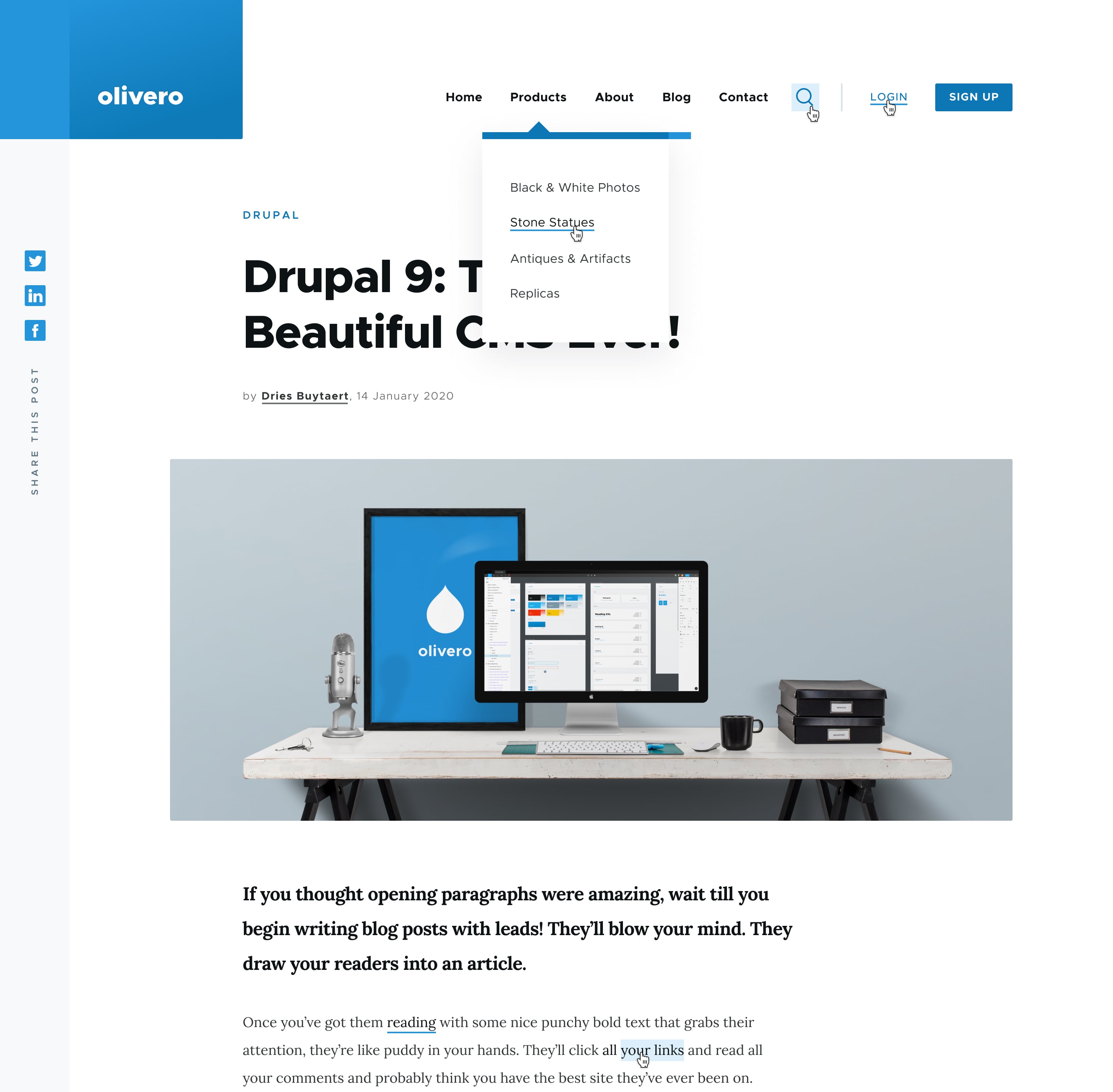
The administration panel will be redesigned as well. The modern appearance will also appeal to the page's visitors.
The Olivero theme was designed to take full advantage of the new system's capabilities and to work with user-favorite features like Layout Builder. The theme will be WCAG AA compliant.
New starterkit theme

In comparison to Drupal 8 or 9, the approach to template development will be altered. We won't extend the base theme because of the new starterkit, but we will generate a clean template as a starting point for building our theme.
This avoids inheriting the entire template, which has very limited update options due to the need to maintain backward compatibility.
The concept of sub-theming remains unchanged – we can still create additional themes that inherit the design elements from our main theme. The theme generation process will be automated and handled by Drupal scripts.
Decoupled Menus
Drupal is a trustworthy CMS because it supports REST, JSON, and GraphQL APIs. The plan for Drupal 10 is to increase the number of web service endpoints available, allowing you to create a large repository of web components and JavaScript framework integrations.
Drupal 10 roadmaps to accomplish this with the Decoupled Menus feature. This feature can be used to build a small web component that ships quickly and addresses a common use case.
Drupal's leadership can significantly extend both headless development and composability by creating more web service endpoints and JavaScript components. As a result, Drupal can continue to be one of the most powerful and adaptable tools for developers. To know more, read this complete guide on the Decoupled menus initiative.
Automatic updates
As a developer, how would you feel if your website could update itself? Drupal 10 features provide developers with secure and smooth updates. The update feature will be added to the core and will be available for Composer-based sites.
The Automatic Updates Initiative is working on several major projects, including UX improvements, package signing for improved security, testing with various host providers, and so on. To know more, read this comprehensive guide on automatic updates initiative.
The Project Browser
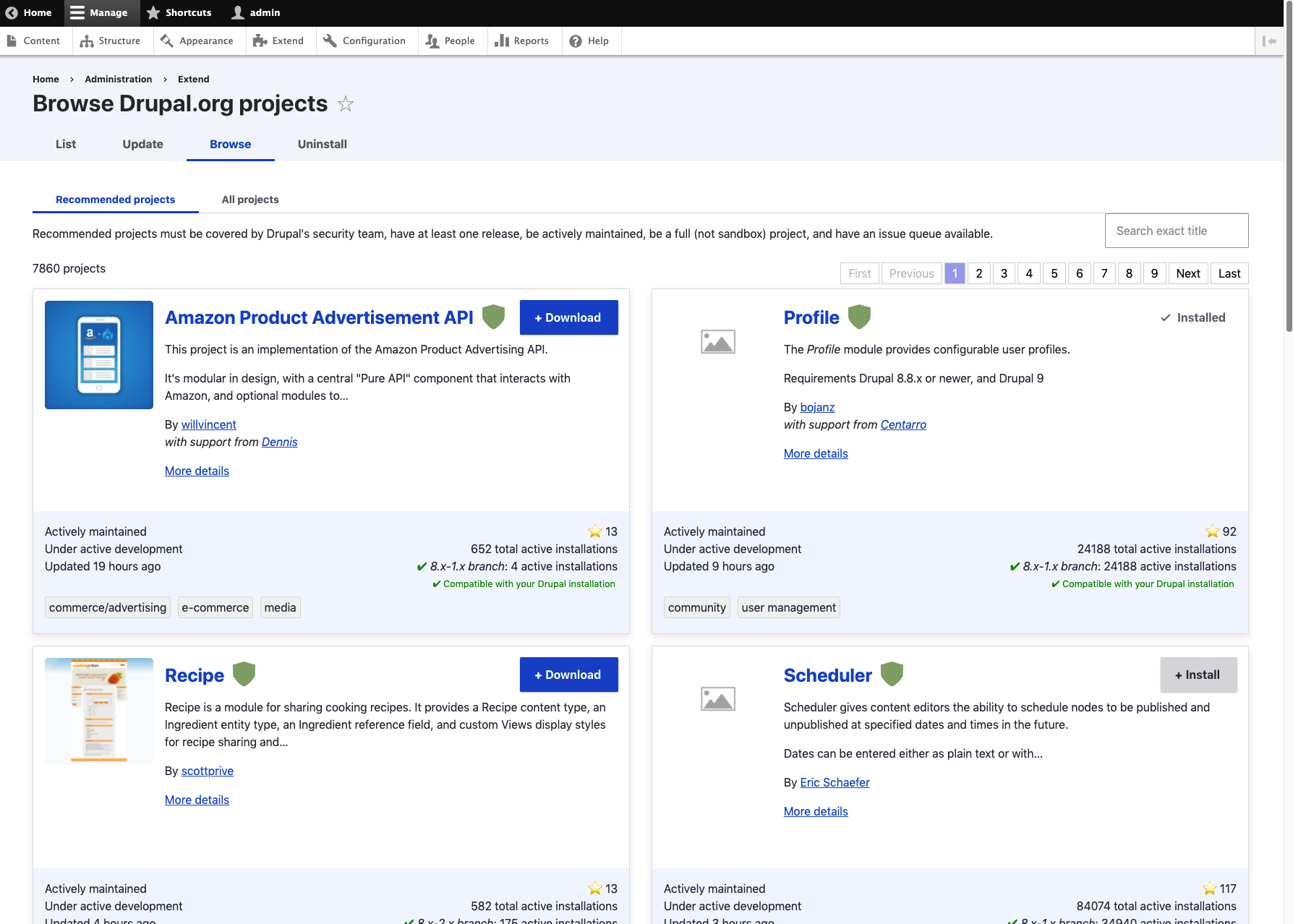
Site builders can find and install modules from the admin dashboard when using Drupal 10. The feature will be added to the Drupal core.
However, the feature is currently only available as a contributed module and is still in its early stages of development. A "Try it now" button lets developers test the feature on a fresh Drupal installation.
Removed Deprecated Code
Drupal core code and libraries marked as "deprecated" in Drupal 9 will be removed. When code is improved, it is likely that some other code cannot be added or retired.
Because retiring code cannot be removed immediately because it may break functionality in a site's custom code or contributed modules, it is marked as deprecated to indicate that it will be removed in the next major version of Drupal.
This gives developers plenty of time to update their code to be Drupal 10 compatible.
Removal of some core modules
A few modules that are redundant or are not widely used will be removed from the Drupal 10 core. These modules will be moved to the Contributed Module space for consistency.
- Aggregator - Gathers and displays syndicated content from external sources (RSS, RDF, and Atom feeds).
- QuickEdit - Content editing in-place.
- HAL - Uses Hypertext Application Language to serialize entities.
- Activity Tracker - Allows users to keep track of recent content.
- RDF - Adds metadata to pages so that other systems can understand their properties.
- Forum - Offers discussion boards.
Improvements in editing experience
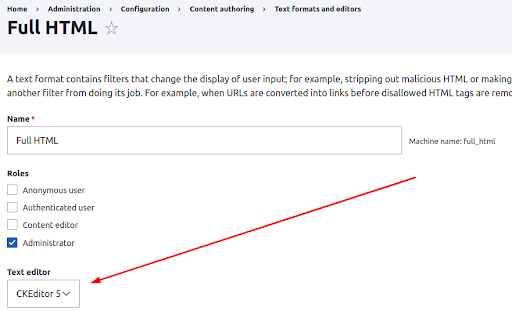
In Drupal 10 roadmap, the default rich text (WYSIWYG) editor will be CK Editor 5. It brings a slew of new features that will enhance the content editing experience.
Autoformatting, for example, allows you to add bold with **asterisks**, headings with #, inline code with 'text', code block with "', and bulleted lists with *. The paste-from-document functionality has also been improved.
The ability to remove extraneous markup from pasting from Word or Google Docs is highlighted in the new version of CK Editor. Read this complete guide on editing provisions in Drupal to know more.
Updated Third Party Software
- jQuery UI: Drupal 10 runs on PHP 8, and PHP 7 will be phased out by November 2022. Furthermore, Drupal 10 will not be compatible with Internet Explorer 11. The jQuery UI could eventually be replaced by modern JavaScript components.
- Symfony: Symfony is one of Drupal's main drivers, and it will be decommissioned in November 2022. As a result, Symfony 5 compatibility issues have been resolved, and developers can now use it with Drupal 10. The team is also excited about updating Symfony 6.
To know more, read about the Drupal 10 readiness initiative.
Conclusion
Drupal 10 is on its way, and the best way to prepare is to stay informed. Organizations are less likely to hesitate to make that change now that Drupal has adapted to a flexible update schedule and easier migration processes.
You can rely on our Drupal migration expertise and experience if you want to migrate your website to Drupal 9 and prepare for Drupal 10.
As a Drupal partner, OpenSense Labs is devoted to provide active support. For a long-lasting and successful cooperation, get in touch with us at [email protected].
Subscribe
Related Blogs
Drupal's Role as an MCP Server: A Practical Guide for Developers

"The MCP provides a universal open standard that allows AI models to access real-world data sources securely without custom…
What’s New in Drupal CMS 2.0: A Complete Overview
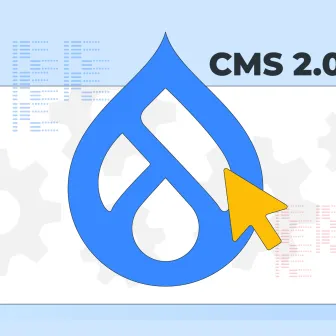
"Drupal CMS 2.0 marks a significant change in the construction of Drupal websites, integrating visual site building, AI…
Drupal AI Ecosystem Part 6: ECA Module & Its Integration with AI

Modern Drupal sites demand automation, consistency, and predictable workflows. With Drupal’s ECA module, these capabilities…




